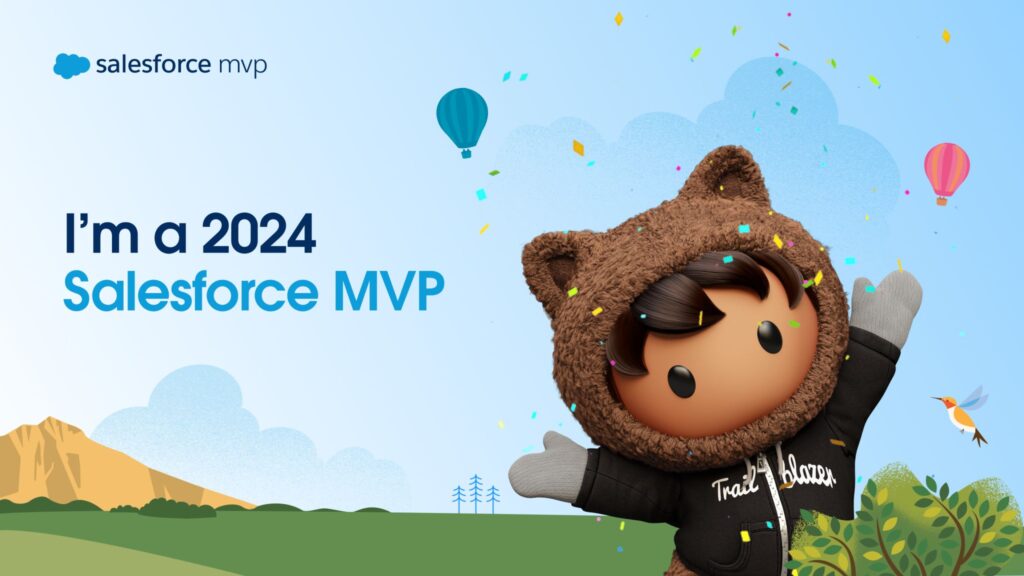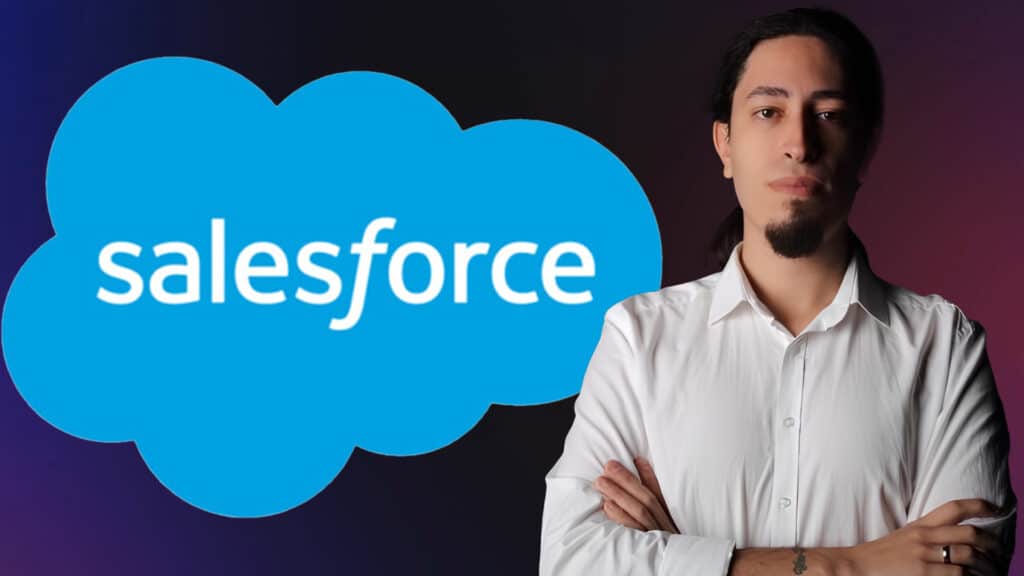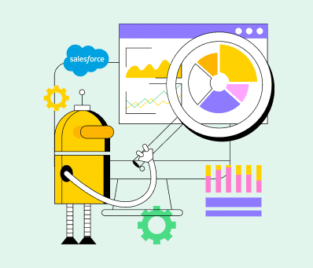Meet an MVP: Yumi Ibrahimzade
Welcome to Titan Talks, your destination for best practices and advice from all the greatest Salesforce MVPs that enrich our community.
Today, we chatted with Yumi Ibrahimzade, who explains his journey to becoming a Salesforce MVP.
Yumi has worked in the Salesforce ecosystem for a decade and has loads of best practices to share about Flows in his website Salesforce Time. Keep reading for all the highlights from this podcast, and find out what Yumi thinks about AI tools for Salesforce Flows in 2024!
Alice: Welcome to Titan Talks, Yumi. It is fantastic to have you here today. Of course, you’ve been working with Titan for quite some time and we are so delighted that you are a Salesforce MVP for 2024. Congratulations again
Why don’t you start off by sharing your Salesforce journey? Where did you come from? How did you get into Salesforce?
Yumi: I’ve been working with Salesforce for 10 years now after university. But as an accidental admin! I was looking for a job and was ready to do anything, so I found a position in a Salesforce admin role.
I didn’t even know what Salesforce was. I got accepted, and then I loved the product. I wanted to learn more about it and improve myself.
I’m originally from Turkey, Istanbul. That’s where I started working with Salesforce. Then, I moved to Israel, where I’m now working as a senior Salesforce solution architect at a Salesforce consulting partner.
And that’s it, actually! That’s my journey till today.
Alice: We love your website – Salesforce Time. Tell us about that initiative, which gives so much back to the community.
Yumi: Almost four years ago, my wife was learning to build websites for her job that were not related to me. She gave me the idea of a blog and built Salesforce Time for me. All the credits go to her 🙂
Then, I started writing blog posts about Flow because I was the Flow guy. From the beginning, that was the product that I loved most about Salesforce. And I trusted myself with my Flow knowledge.
So, I decided to start writing blog posts about Flow. I didn’t know that it was going to be the one and only automation tool. By coincidence, it happened, and it affected my website in a very good way. I am really happy with the feedback that I’m receiving.
And for those who don’t know, Salesforce Time is a website/blog about Flow.
Alice: What is it that you love so much about Flow as a product?
Yumi: Actually, I don’t have a developer background. I know a little bit about how to write code, but I never worked as a developer. So, the thing that I love most about Flow is that it gives me the power of developers and I can do almost anything by myself without any code.

Alice: Tell me, you’re obviously an MVP this year, as we mentioned. Is that something you expected? Is that something you’ve been working towards, or was that a surprise?
Yumi: I mean, it was my dream to be an MVP. I’m actually trying to be active and contribute to the community as much as I can in many ways, actually:
So, I wanted to be an MVP. I think these are important factors for being an MVP, and I thank whoever nominated and voted for me. I’m happy that they chose me as an MVP!
Alice: Wonderful! It sounds like you’re involved in so many exciting community initiatives, events, and your blog. With that said, what do you think you love the most about the Salesforce community after so many years?

Yumi: I think the Salesforce community is like a family. Everybody helps each other.
I know that if I have a question that I cannot find an answer to on Google or somewhere, I know that if I write it to a Salesforce community, I can get an answer from someone.
There are many people willing to help by jumping on a call. Salesforce calls it “Ohana.” I believe it means family. I think it’s like a family where people are trying to help each other.
Alice: I get that same information from so many passionate Trailblazers.
I’ve only been in the community for a couple of years, but from what I have experienced, it’s very open and collaborative. As you say, a family, where people want to help you.
If you don’t know something, people aren’t trying to shut you up. They are actually trying to say I was there, too, and I can help you get where you want to go. I think that’s really special about this community. So, thanks for sharing that.
In conclusion, I’d like to find out what you think is gonna happen in the Salesforce ecosystem this year? We’ve obviously seen a major transformation since AI came on the scene. We’ve seen a whole bunch of rollouts.
What are your predictions for 2024 in Salesforce?
Yumi: Yeah. I think AI is a very popular topic right now, and it’s not just about Salesforce. It’s the most popular topic in the IT world! I think many companies are building their own AI tools. This is what I see.
Also, Salesforce has a new AI tool called Einstein Co-pilot:

But I can also say that I see these features from ChatGPT or any other AI tools. They do a great job, but I think you cannot 100% trust them in the future.
We will use AI tools to build flows. OK. However, we will still need admins and consultants to implement and modify those flows. You cannot ask an AI tool to create a Flow, and that’s it. I’m not sure if it will follow the best practices.
I’m trying to focus on some workarounds on my blog and some use cases that are not too common. So, I don’t think that any AI tool will do tricks now. They will follow common use cases, and that’s it.
I think we cannot expect many creative things from flows built by AI.
Alice: I tend to agree with you. AI is transforming how we work and is a great place to start.
I’m personally in the content space, and what I find is that it makes a lot of things much faster, but you certainly can’t accept the stuff it churns out. Otherwise, everything is robotic, and the content isn’t that enriching.
And I think the same goes for Salesforce Flows. As you mentioned, if you’ve got nobody kind of overseeing or curating it, then it’s not gonna be as good.
But it may help speed up processes to get the ball rolling. And ultimately allow humans to do what they do best: fine-tune things rather than doing so much, you know, manual work. That’s my take.
Yumi: Yeah, I think so. I see people are asking if AI will replace us, but I think it will never happen. It can maybe save or reduce the time that we are working on a flow, but I think we will always need a human to fix the flows that AI built. We cannot just give it to AI, and that’s it.
Alice: This has been an amazing conversation, Yumi. It’s been an absolute pleasure to spend time with you. Thank you for what you’re doing in the community. And, of course, we’re gonna continue the dynamic partnership between Salesforce Time and Titan.
Yumi: Yeah. Sure. Thank you, too.
*Note: This article is an edited transcript of the interview with Yumi Ibrahimzade.
Titan Talks
Keep following us for more insights into the Salesforce community!
We hope to see you soon!

Disclaimer: The comparisons listed in this article are based on information provided by the companies online and online reviews from users. If you found a mistake, please contact us.



